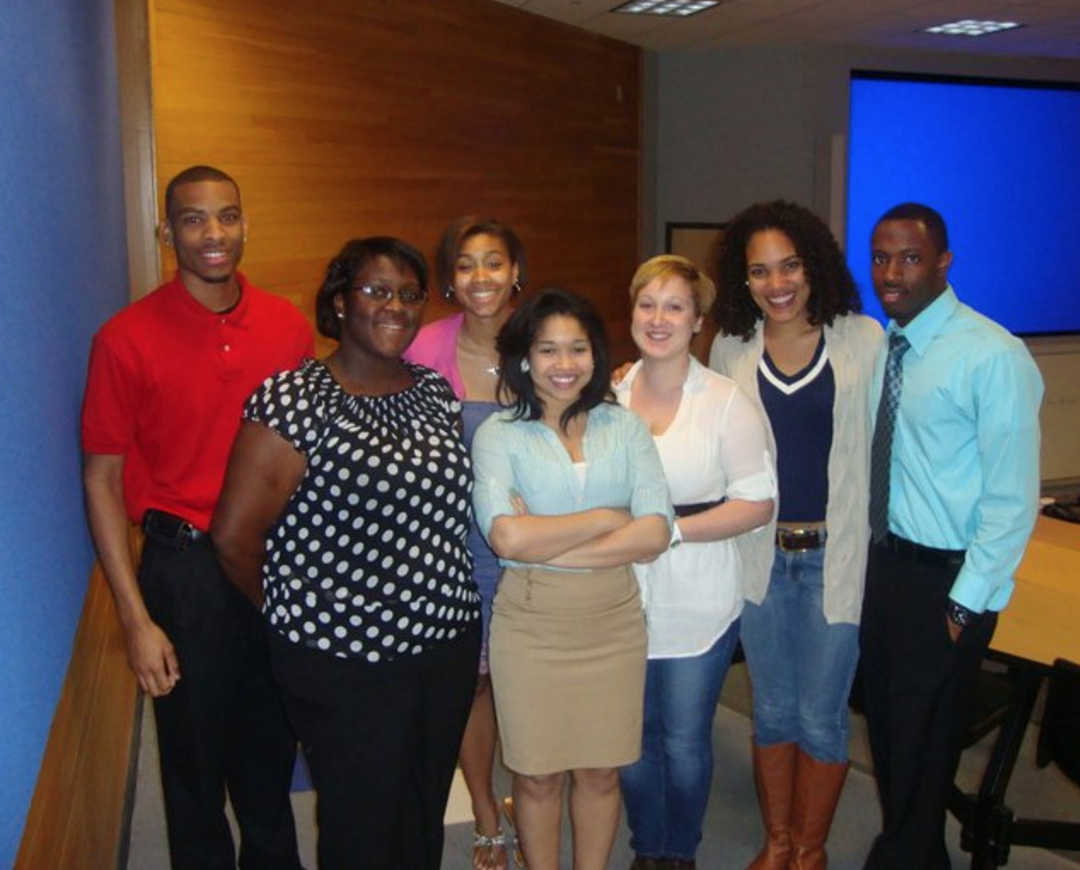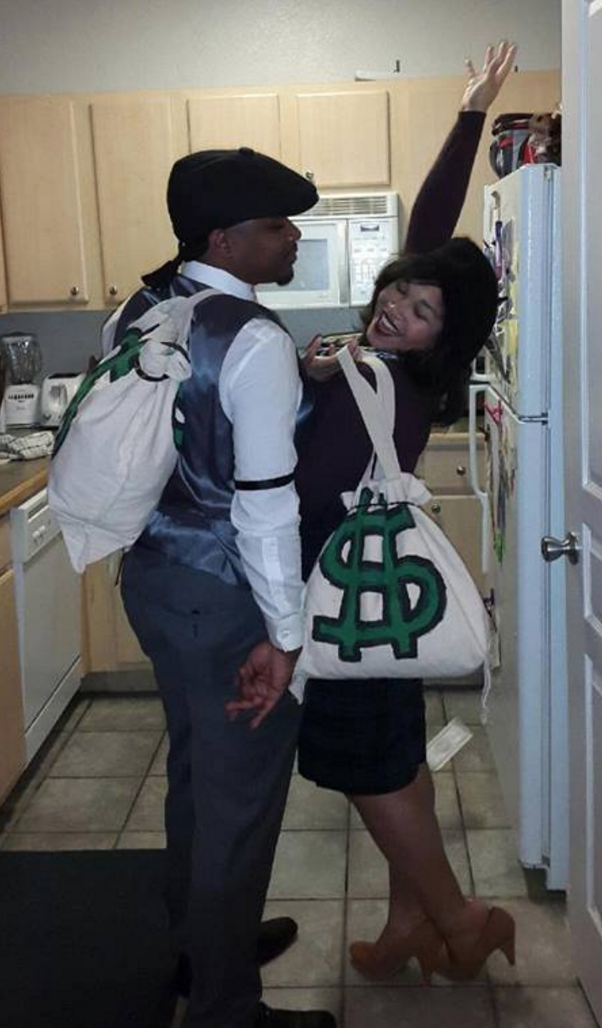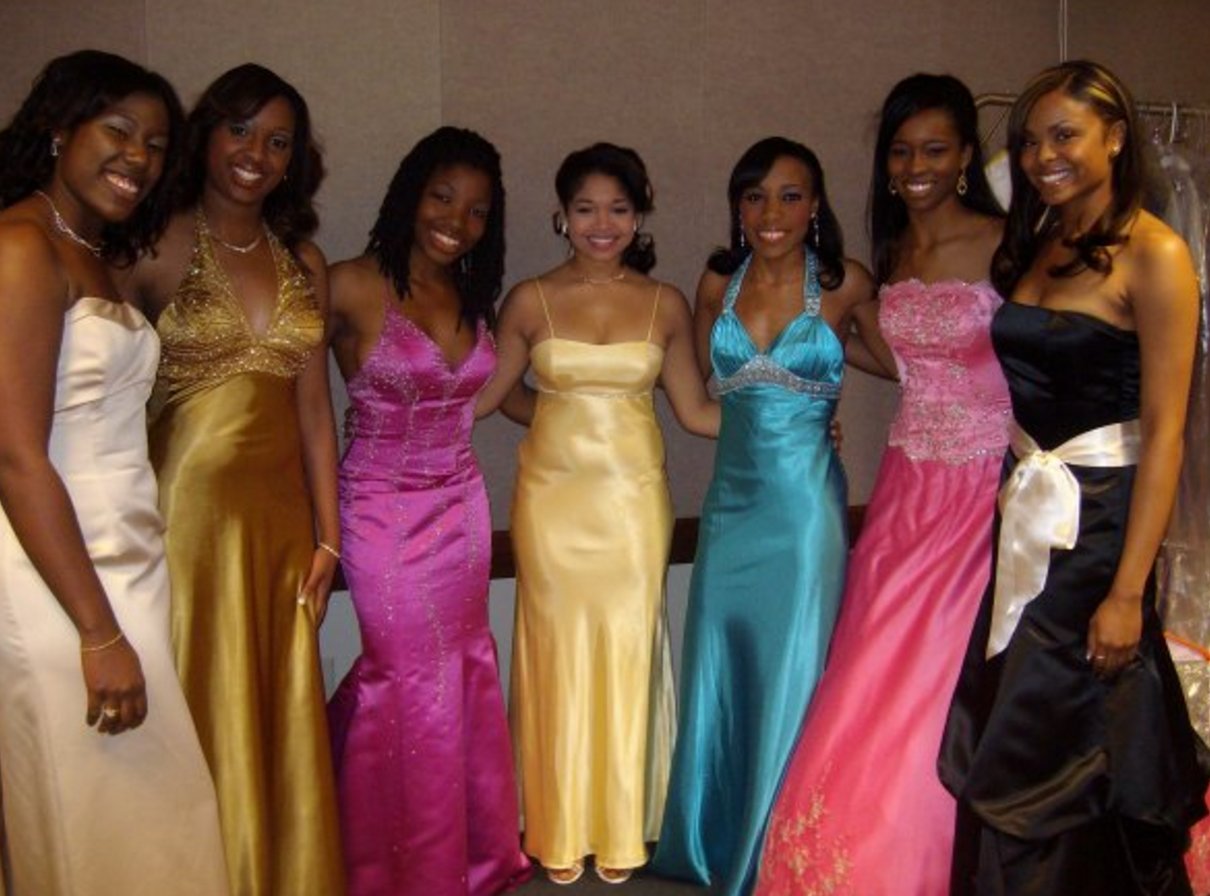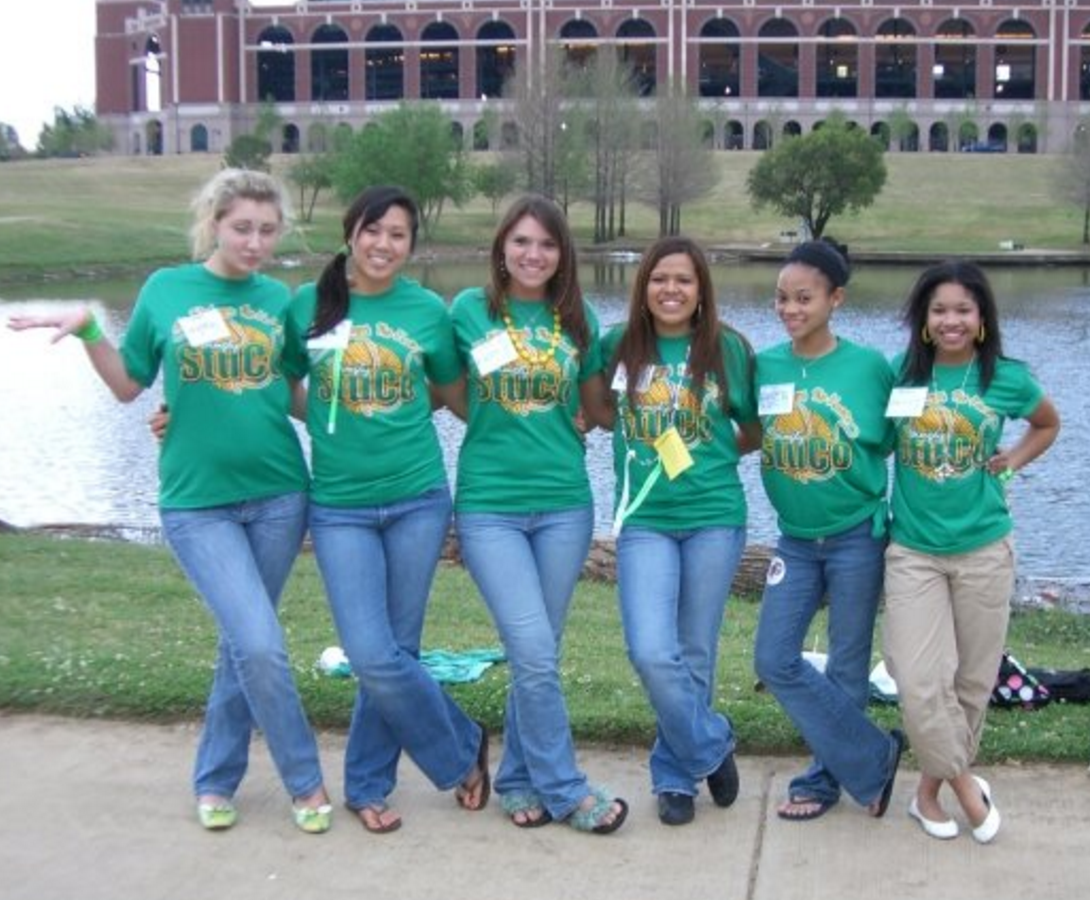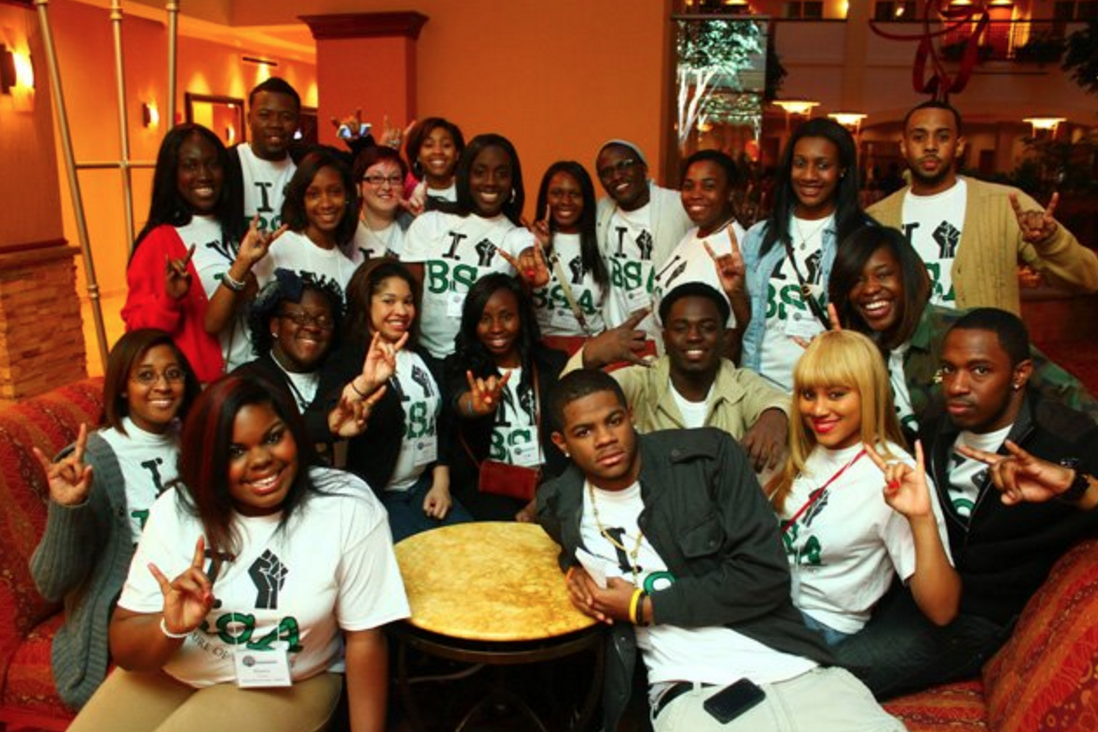Ashley Robinson, 25
WHAT MIX ARE YOU?
I am African American and Mexican/Spanish. My dad is from De Ridder, LA and my mom is from Albuquerque, NM.
WHERE DO YOU CURRENTLY LIVE?
Austin, TX
IS THE COMMUNITY YOU LIVE IN NOW DIVERSE?
It’s becoming less and less diverse each day. Austin is unique in that it’s one of the fastest growing cities in the nation, yet it’s quickly losing it’s African American population. Spaces that were very diverse are becoming more and more white. East Austin in particular is and has been gentrified to the point where black and brown residents are having to pick-up and move to the suburbs to combat high rents. This even affects recreational spaces, like 6th street. When I moved here my freshman year, there were plenty of places that played majorily hip-hop, R&B, and trap, but those spaces have been phased out or djs have made the move to play more mainstream music. It’s sad to see some areas lose the culture that dominated them for years.
WHERE DID YOU GROW UP?
I’m from Albuquerque, NM, but I grew up in Killeen, TX, a military town. Because one of the largest military bases is the sister city to Killeen, there was plenty of different people and cultures to experience. I knew a lot more mixed people here than any other place I’ve lived, and I think that’s because of the military base. While there weren’t a lot of people of Mexican descent in the area, there were tons of people who were black or mixed with black, and I think that played a heavy role in shaping my identity.
HOW DID YOUR PARENTS MEET?
My father was active military and stationed in Albuquerque, NM, when he met my mom. It was love at first sight. At the club.
WERE THERE ANY SIGNIFICANT OBSTACLES IN THEIR RELATIONSHIP CORRELATED TO YOUR BACKGROUNDS?
Albuquerque has a very low population of African American men, so my mom being out and seen with him was an issue. In fact, she was part of a majority white sorority, ΔΔΔ, when she brought him to a party. She was removed from the organization 2 weeks later. She has told me before that dating a black man had a lot to do with it. There were also time constraints as my mom was in college and my dad was active duty, so they couldn’t see each other as often as they’d like.
HAS YOUR EXTENDED FAMILY ALWAYS BEEN SUPPORTIVE OF YOU BEING MULTIRACIAL/BIRACIAL?
No. My mom’s side of the family shunned her for a long time for dating outside her race. She was the first, and only to do it, so my sister and I are the only biracial members of that side of the family. She was also the youngest of 11, and the first to attend college, so dating outside her race was a blow to the image my family had of her. Unfortunately, one of my uncles called me a racial slur, which led to more strife. Because of the abhorration to accept my mom’s relationship and myself, when my dad got stationed in Texas, my mom decided to pack up and we moved with him. I don’t think she spoke with some of my uncles for 5 years. Eventually, my grandma came to live with us, and my some of my aunts came to visit us, and my mom and the rest of her family reconciled.
DID YOU CELEBRATE TRADITIONS FROM BOTH SIDES OF YOUR FAMILY?
My elementary school had ballet folklorico, and my grandma spoke Spanish, some English, so I learned the language, watched telenovelas with her, and read Spanish books. I learned to cook recipes for both cultures, such as pozole, empanadas, enchiladas (red and green), red beans and rice, gumbo, crawfish boil, ox tails, rice and gravy, and much, much more. My dad also introduced me to all kinds of music created and cultivated for and by black people, and also educated me on black history. As for traditions, I wouldn’t say we celebrated any particular holidays associated with my background besides Christian ones.
WERE THERE MULTIPLE LANGUAGES SPOKEN IN YOUR HOUSEHOLD?
My grandmother spoke Spanish, so I caught on as well. Conversationally, I can get my point across, but I wouldn’t say I’m fluid. I do regret not learning more when I was younger. Because my grandmother couldn’t speak English very well, I sometimes played the role of translator. I wish I had done more actual speaking in Spanish with her though. I feel a little less sometimes when I can participate in a Spanish conversation, and I’m sure many other Hispanic people have felt too.
WHAT DO YOU ENJOY MOST ABOUT YOUR CULTURAL BACKGROUND?
I think I love the food most of all (though music and history is a close second and third). I love the idea that I’m making something that is explicitly related to someone in my family who may not be around anymore. For example, my Daddy’s gumbo recipe goes all the way back to when our ancestors were first freed, maybe even before. I feel like it’s so good because the recipe is basic; it hasn’t changed. And that’s what I love about family recipes, because everyone loves food, so there’s little chance the tradition of cooking what our ancestors did will die.
WHAT ACTIONS DID YOUR PARENTS TAKE TO TEACH YOU ABOUT YOUR DIFFERENT BACKGROUNDS?
Besides various anecdotes about our family members and putting me in activities that were related to my cultural background, I often read and watched stories that were related to my culture to educate myself.
DID YOU TALK ABOUT RACE A LOT IN YOUR HOUSEHOLD WHEN YOU WERE GROWING UP?
We didn’t until I started asking questions myself. I don’t think my parents noticed they did it, but I could tell they kind of ignored the topic for a long time, and I think that’s because they didn’t want to have to explain certain things about my family. But I did talk to my grandparents about it when I could because it was so gratifying to hear their stories. My grandmother on my mother’s side told me about her experiences leaving her family and moving to America because of the war. She spoke a lot about the issues she faced because she couldn’t speak English very well. But then again, I remember times she spent with my granny, on my dad’s side, and they couldn’t speak much to each other, but they enjoyed each other’s company immensely. It was beautiful to see them interact, to see people of two different races, and languages, laugh and enjoy things together.
DO YOU IDENTIFY AS MIXED OR SOMETHING ELSE?
I do identify as mixed. But I also feel I have equal stakes in the cultures that make-up my background. I don’t think it’s fair to box mixed people in a corner and say they’re not fully apart of a culture if they’re not fully made up of that culture. So I do consider myself black AND Hispanic, and I do feel I’m an equal member of those communities as separate entities.
DOES RACE WEIGH INTO WHO YOU DATE?
No, I’ve dated men of all races. I don’t really think I have a type. My last partner was a black man.
WHAT DOES BEING MIXED MEAN TO YOU?
Being mixed means having to do a tireless, unnecessary amount of explaining: Explaining your background, where you’re from, why you do/don’t speak certain languages, defending if you’re “really” part of that culture, etc. But there’s also the beauty of being able to experience more than one culture, and having a rich history from more than one background.
DO YOU HAVE A LOT OF FRIENDS WHO ARE MIXED?
Because of where I grew up, yes. However, it’s very rare to meet other mixed people when I moved away from home. It was refreshing to learn that the issues I faced as a mixed person was felt by others of the same background. Particularly, I found it refreshing to meet other mixed people who identify as black and discuss the issues they’ve faced, which were most times similar to the ones I have.
ARE THERE ANY COMMENTS YOU ARE REALLY TIRED OF HEARING FROM PEOPLE IN REGARDS TO RACE/CULTURE?
As I said earlier, explaining is a big part of being mixed. But I am really tired of hearing that I’m not really part of the cultures that make up my genetic code. Just because I don’t speak Spanish doesn’t make me any less Hispanic, and just because I’m mixed, doesn’t make me any less black. While my experiences are different, I’ve often had to face obstacles that stand in the way of success for both cultures because of my race, and have had to overcome them on my own. I think it’s very belittling to erase someone’s identity just because they don’t fully fit into the narrative. I’ve come to face this issue a lot, specially since I joined and lead an African American student government-type organization, Black Student Alliance, while at UT.
WHAT IS YOUR DREAM FOR THE FUTURE OF AMERICA IN REGARDS TO RACE?
I’m one of those people who do not want to see a post racial America, because race is beautiful. Having different cultures is beautiful. And to turn a blind eye to that is a slap in the face of all the people that put in work to make people of different races equal and accepted (or at least as much as we can be). I do want to see a time where people of all races are treated equally, socially, economically, physically, and emotionally. We need to recognize as a nation that we are not here yet, and simply saying “we should stop talking about race” is ignorant, because our cultures and the colors of our skins aren’t going to change. Attitude and respect is what needs to change.
ANYTHING ELSE YOU WANT TO SHARE?
As all women of color do, I want a line of hair care products for my hair that doesn’t involve me buying 457893478 different products and make-up that can match my weird skin tone. A girl can dream, right?





